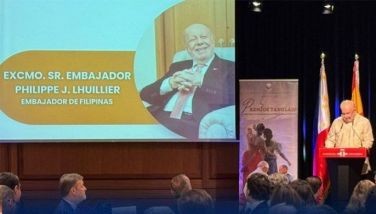The threat to Brazil’s democracy

Brazil’s presidential election campaign is in full swing after officially kicking off on Aug. 16, pitting leftist former president Luiz Inácio Lula da Silva (‘Lula’) against right wing incumbent President Jair Bolsonaro.
Lula is the clear favorite to win. As the first round of the vote on Oct. 2 approaches, the former president leads voting intention by about 9 points. Neither Lula nor Bolsonaro looks likely to get enough ballots to win outright though, so both candidates will face off in a runoff election on Oct. 30. An average of all polls currently has Lula leading that race with a 12-point advantage over the president.
It’s the economy, stupid
In 2018, Bolsonaro was elected on an anti-establishment, tough-on-crime, anti-corruption platform, in line with voter demands at the time. But this year, the main issue is by far the economy.
After years of weak growth, the combination of the COVID-19 pandemic, the Russia-Ukraine war and rising interest rates in the United States hit Brazil – and Latin America – hard, leading to skyrocketing inflation, an increase in unemployment, a drop in real income and a surge in poverty. Most Brazilians are unhappy with the deterioration in their living standards and fear the worst is yet to come. As is usually the case, they blame the president for their woes.
By contrast, voters rate Lula highly on the economy, as they remember the major socioeconomic gains Brazil made during his first two terms in office – when the prices of Brazil’s commodity exports were at historic highs – and have high hopes that he can “make Brazil great again.” It also helps the scandal-ridden ex-president that corruption is no longer top of voters’ minds. All Lula has to do is stay on message.
Bolsonaro is still in the race
But don’t count Bolsonaro out just yet. Brazil’s economy has over-performed expectations over the last couple of months, with unemployment recently dropping below 10 percent, growth estimates being revised upward and inflation easing. Part of this is due to the lifting of COVID-19 restrictions and the decline in global food and energy prices, but the president has also pitched in by boosting welfare benefits, lowering fuel taxes and raising the minimum wage.
The stronger-than-expected recovery has propped up economic sentiment and helped Bolsonaro narrow the gap with Lula. The president’s approval ratings have inched up to 38 percent from 35 percent a month ago and 30 percent in January, in a sign that voters are feeling the improvement. And most forecasters expect the economy to strengthen further in the coming weeks, meaning Bolsonaro’s bid is becoming more competitive just as the campaign enters its decisive phase.
The president will spend the rest of the campaign playing up his administration’s economic achievements. And while Bolsonaro can’t directly campaign on an anti-corruption message, he can use his anti-system credentials to tarnish Lula, the courts, the media and the electoral system as agents of the establishment – a charge that resonates deeply with the large share of Brazilians who are fed up with “business as usual.” This is the strategy that got him elected in 2018 – the same that also helped elect Andres Manuel Lopez Obrador in Mexico, Gabriel Boric in Chile and most recently Gustavo Petro in Colombia.
Too little, too late?
While the race will tighten and some polls may show a toss-up or even Bolsonaro ahead, ultimately the president is unlikely to be able to turn the race around.
Economic issues remain voters’ main concerns; despite the recent improvements, most Brazilians are still worse off than they were prior to the pandemic – and they are skeptical that Bolsonaro will be able and willing to change that.
The president needs to run a near-perfect campaign and pray for Lula to stumble if he’s to have a shot, but so far the televised interviews and debates have been a wash for both candidates. That’s bad news for Bolsonaro, who needs to gain ground – and soon.
6 de Janeiro
But even if the outcome of the election isn’t all that close, a tightening race will give Bolsonaro more grounds to claim that the vote was rigged. He has laid the groundwork for this scenario by casting (unfounded) suspicion on Brazil’s electronic voting system and warning the election will be stolen by the corrupt establishment. In fact, for years the president also has claimed that he actually won in the first round in 2018 (he didn’t).
So if he loses – as he’s likely to – Bolsonaro will almost certainly contest the result and urge his supporters to take to the streets to overturn the vote, much like Donald Trump did on Jan. 6 in the United States. Demonstrations could turn violent. The odds that they’d succeed, however, are similarly next to zero. Brazil has no legal mechanisms to contest elections, and the courts and the military would stand with the rule of law. At the end of the day, whoever wins will be sworn in.
The bigger danger is that the threat to democracy is here to stay. Brazilian society is deeply disenchanted with the system, and a Jan. 6-style event would only erode trust further. Whatever happens in October, the forces that propelled Bolsonaro to power will not fade away.
Will institutions hold the next time a crisis comes knocking?
I’m not looking forward to that answer.
* * *
Ian Bremmer is the president of Eurasia Group and GZERO Media and author The Power of Crisis.
- Latest
- Trending




























